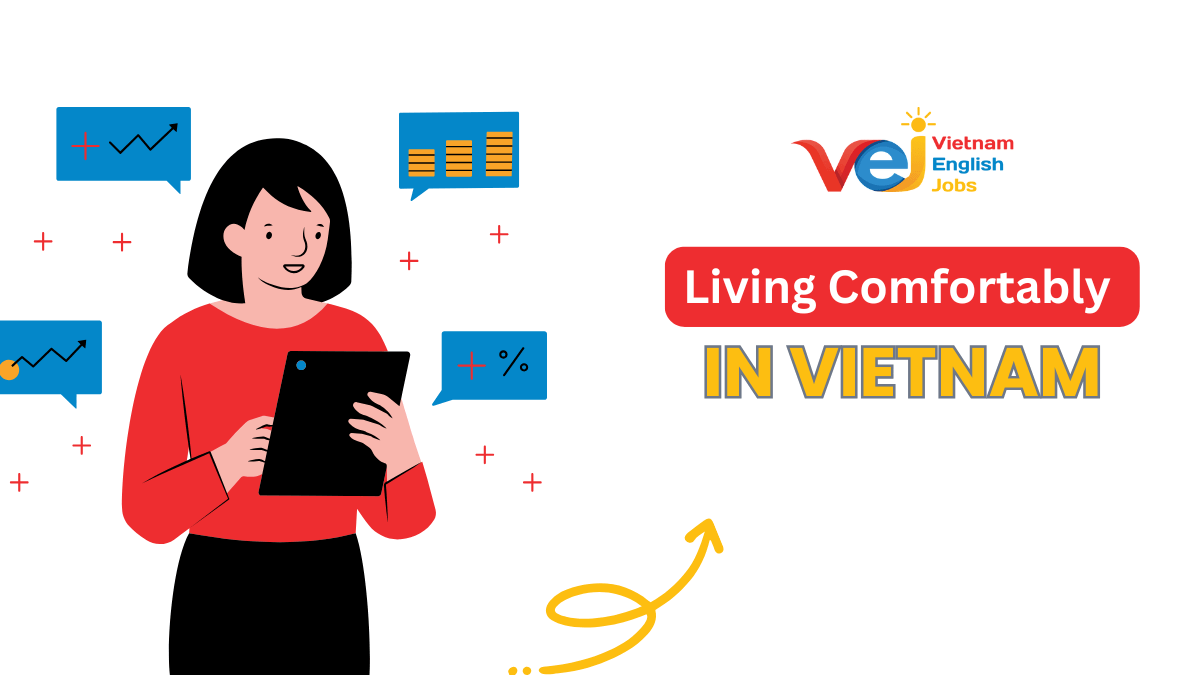Budgeting Tips for Expats: Living Comfortably on a Teacher’s Salary in Vietnam
Moving to Vietnam to teach English or other subjects can be an exciting adventure. The country offers a rich culture, affordable lifestyle, and plenty of opportunities for teachers. However, one of the biggest concerns for new expats is whether a teacher’s salary is enough to live comfortably. The good news is Vietnam is one of the most budget-friendly countries in Asia, and with smart planning, you can save money while still enjoying a good quality of life.
In this guide, we’ll share practical budgeting tips for expats in Vietnam so you can make the most of your teacher’s salary.

1. Understand Your Income and Expenses
A full-time teaching job in Vietnam usually pays between $1,200 – $2,000 per month, depending on your experience, location, and school type. While this might not sound like much compared to Western salaries, the cost of living in Vietnam is significantly lower.
Typical Monthly Expenses for Teachers in Vietnam:
- Rent: $250 – $500 (depending on city and housing type)
- Utilities & Internet: $50 – $80
- Food & Groceries: $200 – $350
- Transportation: $40 – $70 (Grab, motorbike rental, or public transport)
- Leisure & Entertainment: $100 – $200
On average, teachers can live comfortably on $800 – $1,200 per month, leaving room for savings.
2. Choose Affordable Accommodation
Housing is often your biggest expense. To save money:
- Share an apartment with other expats or local teachers.
- Look for rentals outside the city center for lower prices.
- Use Facebook groups and expat forums to find housing deals.
Pro tip: In cities like Ho Chi Minh City or Hanoi, avoid serviced apartments with high management fees unless your budget allows it.
3. Eat Like a Local
Vietnam is famous for its delicious and affordable food. A bowl of pho or com tam costs around $1.50 – $2.50, much cheaper than Western restaurants. To stick to your budget:
- Enjoy street food and local eateries.
- Shop at wet markets for fresh produce at lower prices.
- Cook at home when possible instead of eating out every day.
4. Manage Transportation Wisely
Most expat teachers either:
- Rent a motorbike ($50 – $70/month)
- Use Grab (ride-hailing app) for convenience
- Or mix public transport with walking
If you’re not comfortable driving in Vietnam’s traffic, Grab is reliable, but costs can add up. Consider renting a motorbike if you stay long-term.
5. Track Your Spending
It’s easy to overspend when everything feels cheap. Use budgeting apps like Mint, YNAB, or Money Lover (Vietnamese app) to keep track of daily expenses.
- Set aside money for savings first.
- Allocate a fixed amount for leisure.
- Avoid unnecessary impulse spending.
6. Save on Leisure and Travel
Vietnam offers plenty of entertainment and travel options at affordable prices. To enjoy life without overspending:
- Take advantage of free or low-cost attractions like local parks, temples, and museums.
- Travel by train or budget airlines for weekend trips.
- Join expat communities for free social activities.
7. Build a Savings Habit
Even on a modest salary, saving is possible. Many teachers in Vietnam manage to save $300 – $600 per month by living modestly. Consider:
- Creating an emergency fund.
- Saving for travel or future plans.
- Sending part of your income back home for long-term security.
Living in Vietnam as an expat teacher is not only affordable but also rewarding. With the right budgeting tips and financial habits, you can enjoy a comfortable lifestyle, explore the country, and still put money aside each month. The key to financial stability in Vietnam is living like a local while balancing expat comforts. By being mindful of your spending and making smart choices, you’ll find that a teacher’s salary in Vietnam is more than enough to live well.

















